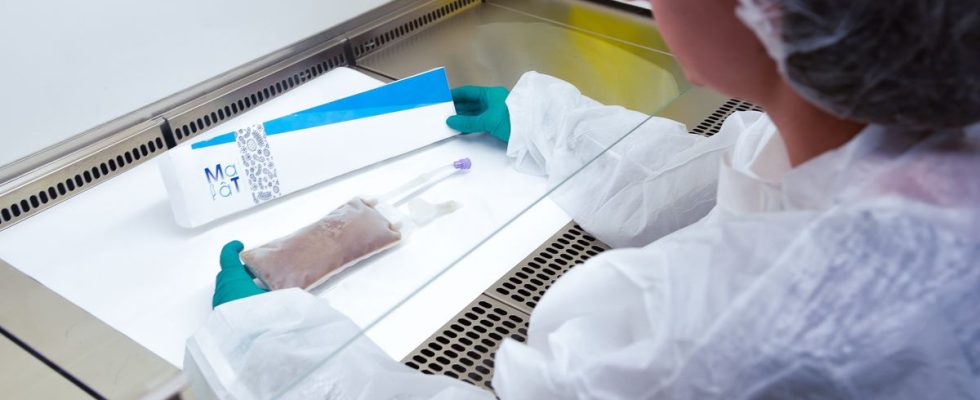What if we could increase the survival of blood cancer patients with feces? The Lyon biotech laboratory Maat Pharma is currently working on a surprising, yet very serious, treatment: MaaT013, a drug made from human stool.
Injected rectally, as with an enema, this medication aims to restore the microbiota of patients which would have been destroyed or greatly damaged by chemotherapies and antibiotics. An essential step towards healing.
The intestinal flora “collects minerals, vitamins, fungi, viruses, bacteria,” recalls Carole Schwintner, director of technological developments within the laboratory. In this way, it contributes to the health of our immune system. »
“Under treatment, the survival rate is 60% instead of 20%”
In summary, having a healthy microbiota increases the chances of success of a bone marrow transplant, regularly used to treat blood cancers. And therefore increase the life expectancy of patients. The first results, recorded by the laboratory, are encouraging: “Under treatment, the survival rate is 60% instead of 20%,” reveals Carole Schwintner.
Since 2018, the laboratory has had around ten “collections” and around fifteen donors for each of them. All are only done in Nantes for the moment. As for volunteers, they must first go through several steps to donate their stool: fill out a questionnaire, speak with a doctor and carry out blood and fecal tests. Just to ensure that there are no infectious germs.
Saddles transported by train to Lyon
The protocol is binding. The collection, which extends over a period of 8 weeks, requires a daily donation. The slightest concern must be reported. “Each donation is traced, so in the event of a problem, it is possible to trace the donor while guaranteeing anonymity,” explains Carole Schwintner.
The stools are placed in plastic receptacles and kept in an incubator at 5°C. The boxes are then labeled, triple-packed and then transported by train to Lyon. From there, they are collected and transported by van to Saint-Quentin-Fallavier, where the MaaT Pharma laboratory factory is located.
No later than seventy-two hours after collection, the stools, from four different donations, are mixed to produce the active substance of the medicine. This combination “makes it possible to obtain a much richer product”, underlines Carole Schwintner. And therefore promotes “better acceptance of treatment”.
Currently, this new drug is only being tested in hospitals. Two hundred patients have already benefited from it. It could be put on the market in 2026. In addition, other stool-based drugs are being developed, in capsule form which could be available for sale under prescription, this time, to individuals.

